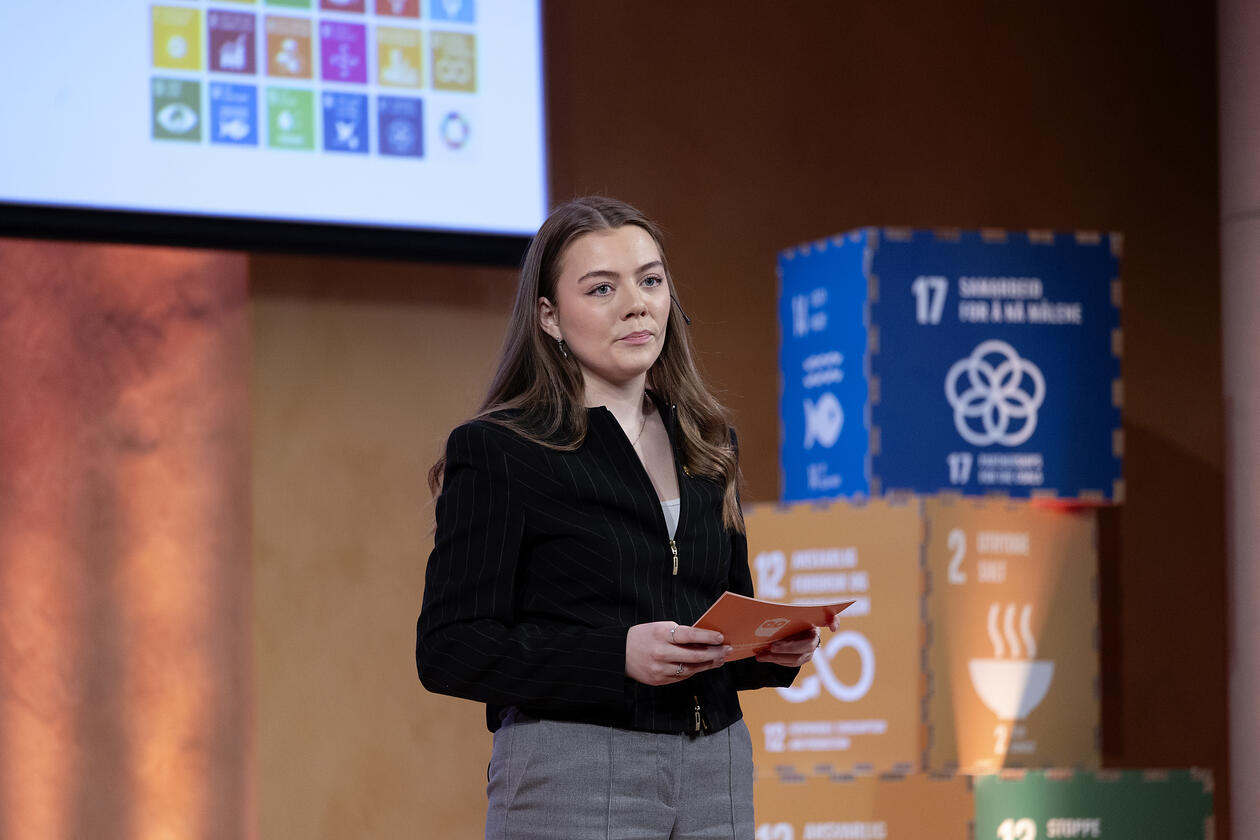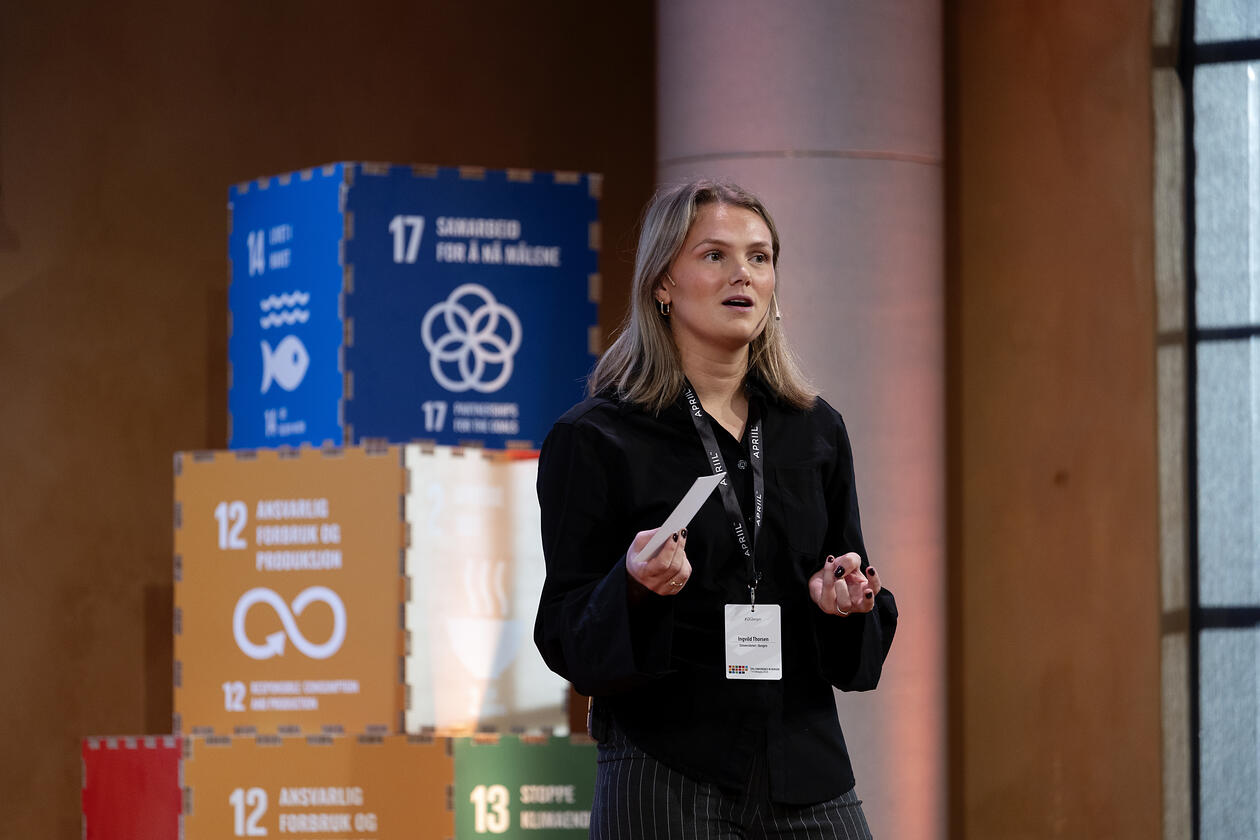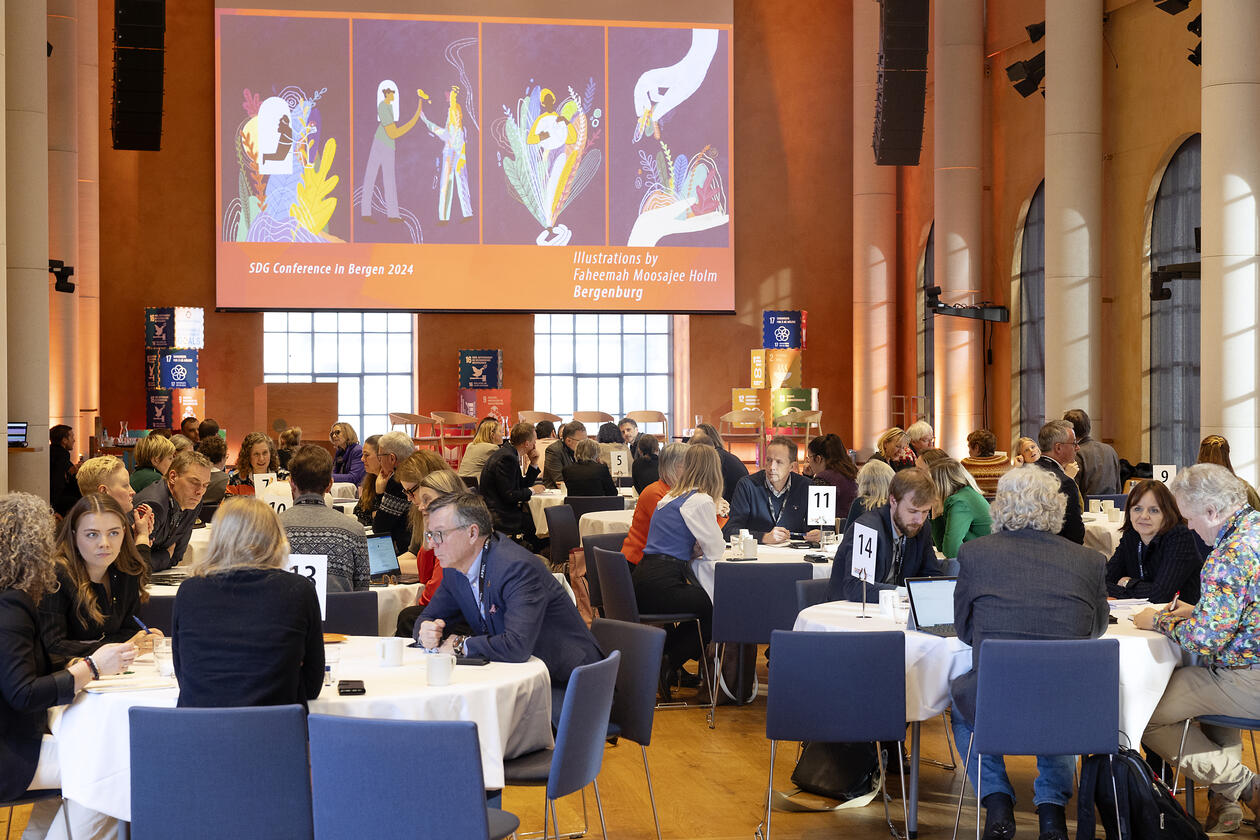Remembering the SDG Conference Bergen 2024
The 2024 conference consisted of both a digital day with talks and debates in English, where around 1300 people participated, and a physical conference day in Norwegian.

Main content
«Universities are arenas for debate and critical thinking, and we will definitely open up for that these days,» the rector of the University of Bergen, Margareth Hagen said as she opened the 7th SDG Conference Bergen on the 8th of February 2024. And this year's conference was definitely full of interesting talks and debates.
«The adoption of the SDGs gave hope, but with just six years left until 2030, it is clear that changes are not happening fast enough,» Hagen said, and quoted the latest SDG progress report from the UN, that says it is time to sound the alarm. That is the reason this year’s conference was about the role of universities in transformative change.
Good examples
This year the conference gathered close to 1300 participants from all over the world, digitally. On day one, there were a lot of insightful talks from distinguished scholars like professor Farhana Sultana at Syracuse University, professor Arjen Wals at Wageningen University, Bodhisattva Chattopadhyay at UiO an Ioan Fazey at University of York.
CEO of Sensorita, Ulrikke Lien, talked about how she started a business that wants to make the waste industry more sustainable, and stressed how important the support and encouragement from her university, The Norwegian University of Life Sciences was.
A physical and digital conference
This year, the conference brought back some elements from SDG conferences a few years ago, as day two gathered people in person for the first time since the pandemic. The programme committee believed this was necessary to spark important conversations about education in Norway. In the audience were representatives from Norway’s university sector, politicians, state and county officials, civil society and other SDG enthusiasts. The physical conference on Day 2 was also streamed.
The day before the official conference, Day zero, also brought together many people in front of their screens and in different locations to discuss SDG issues. This day opened with a panel on private-public partnerships and deep-sea mining as a case, lead by Sintef and UiB researcher, Dorothy Dankel. Interestingly, on that same day, the European Parliament voted in favor of a resolution that sent a strong signal and expressed critical environmental concerns regarding Norway's decision to open vast areas in Arctic waters for deep-sea mining activities.
Centre for Climate and Energy Transformaton (CET) had a session where the researcher as an activist was discussed, and this ended up as a story in the newspaper Khrono.
A close relationship to sustainability
On Day two the main question was: Do we need to think radically different about how we educate?
The leader of the Student parliament at the University of Bergen, Kaja Ingdal Hovdenak, was 15 years old when the SDG’s were adopted, and in her address to the conference, she focused on how she is part of a generation that has grown up with the climate crisis just around the corner.
«This is something that the students today have a close relationship to, and it is only natural for us to demand that even more be done. When we start studying, we already have a sustainability perspective. I think one of the most important things universities do to be part of the solution is to educate citizens that can think for themselves and have a critical sense. Because we don't know what knowledge and adjustments we will suddenly need in the future,» she says.
Good examples of education that incorporates sustainability perspectives were presented. At NTNU’s Faculty of Natural sciences, they demand that all departments figure out how to incorporate sustainability in their programmes, and they ask them to show how the students will contribute to a more sustainable world after graduating.
Valuable experience
At the University of Bergen there is a master’s programme in Sustainability, created only a few years ago. It is the first of its kind at a multidisciplinary university like UiB. Professor Kjetil Rommetveit and master’s student Ingvild Thorsen talked about how the master’s programme is interdisciplinary and has students from many faculties.
«We have a an awareness of all the different ways of knowing about the world that are represented.» Rommetveit said from the stage.
«From the start I have been assured that the competence I have from my bachelor’s degree in sociology is important and needed for å sustainable transformation. I have really been challenged, and learned new ways of thinking,» Thorsen said.
The students at the master’s programme go though several weeks of work placement at different organizations and public and private institutions. Thorsen worked at The United nations Global Compact, and thought this was a very valuable experience.
«Through this experience I really got an understanding of the relevance of sustainability for businesses, and I encountered real life issues they face. The focus on sustainability can sometimes feel a bit heavy and difficult, but to me it doesn’t feel that way anymore. I have become more optimistic through this course, because I have been given tools that enables me to be a part of a sustainable future,» Thorsen said.


